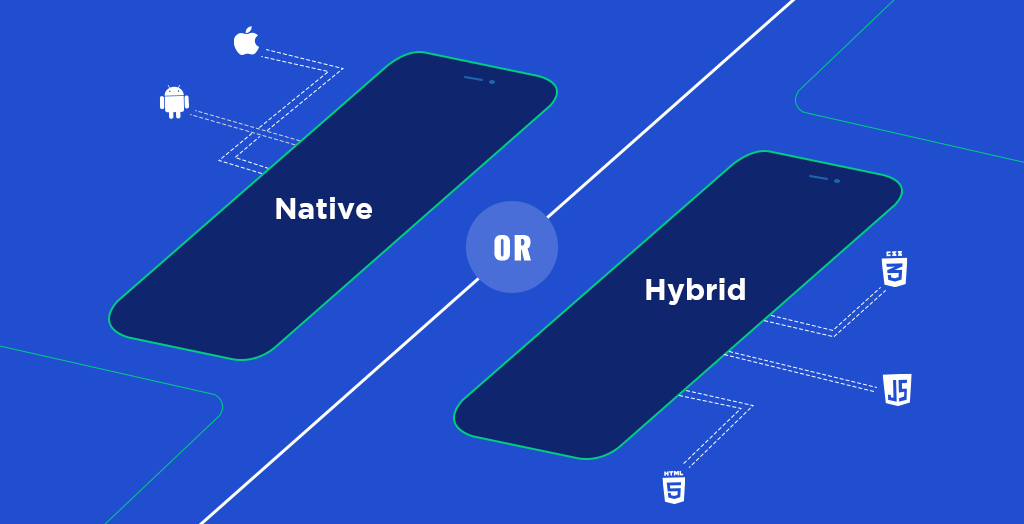So, you’ve decided to build a mobile app. Great! But now comes a crucial decision—should you go native or hybrid? This choice can significantly impact your app’s performance, cost, and user experience. Let’s break it down so you can make the best decision for your business.
What’s the Difference Between Native and Hybrid Apps?
- Native Apps – These are built specifically for one platform (iOS or Android) using platform-specific languages like Swift (iOS) or Kotlin (Android).
- Hybrid Apps – A single app that runs on both iOS and Android using web technologies like HTML, CSS, and JavaScript, wrapped in a native container.
Native vs. Hybrid: Pros and Cons
To help you compare both options clearly, here’s a breakdown of their advantages and drawbacks:
Feature | Native Apps | Hybrid Apps |
Performance | ✅ Faster and more responsive | ❌ May experience lags and slower load times |
User Experience | ✅ Optimized for each platform | ❌ May not feel as seamless |
Access to Device Features | ✅ Full access (camera, GPS, sensors) | ❌ Limited access, may not work smoothly |
Security | ✅ More secure with robust protection | ❌ Potential security vulnerabilities |
Development Cost | ❌ Higher (separate codebases for iOS & Android) | ✅ Lower (single codebase) |
Development Time | ❌ Longer (two versions need to be built) | ✅ Faster development |
Maintenance | ❌ More complex (separate updates for each OS) | ✅ Easier (updates rolled out simultaneously) |
Market Reach | ❌ Requires separate apps for iOS and Android | ✅ One app covers both platforms |
Which One is Best for Your Business?
Go Native if:
- You need high performance and advanced features.
- You want the best user experience tailored to each platform.
- Security is a top priority (e.g., banking, healthcare, or fintech apps).
Go Hybrid if:
- You have a limited budget and a tight development timeline.
- Your app doesn’t require heavy device interactions.
- You want a faster launch and a broader market reach with a single app.
Popular Frameworks for Hybrid App Development
If you decide to go the hybrid route, you have several powerful frameworks to choose from:
- React Native – Developed by Facebook, offers near-native performance and a strong developer community.
- Flutter – Google’s UI toolkit for creating beautifully designed, natively compiled applications.
- Ionic – Based on web technologies, ideal for fast app development and deployment.
Final Thoughts
Choosing between native and hybrid apps depends on your budget, timeline, and feature requirements. If performance and user experience are your top priorities, go native. If cost and speed are more important, hybrid is the way to go.
Whatever you decide, make sure your choice aligns with your business goals and customer expectations. A well-planned app strategy will set you up for success in the competitive mobile market!
🚀 Ready to build your app? Let’s discuss your project and find the best solution for your business! Contact us today.
#MobileAppDevelopment #NativeVsHybrid #TechSolutions #BusinessGrowth #AppDevelopment





